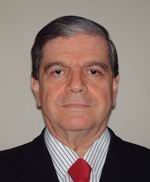 By Eduardo Chaparro*
By Eduardo Chaparro*
The very essence of mining makes the regular citizen wonder whether mining is valid since its footprints are extremely visible: large excavations, subsidence, aquifer pollution, and soil destruction are some of the damages that may be attributable to mineral extraction.
From a different perspective, it is known that the concept of Sustainable Development is dynamic and, perhaps, it has evolved so fast that whenever a concept is generated, it sometimes introduces antagonistic variables. Some of these variables persist in the beliefs and attitudes of the communities and citizens from all countries.
Nowadays, nobody remains indifferent to the problems caused by irresponsible behaviour towards the environment; that is to say, industrial malpractices causing deterioration of the environment. This process was originally conceived with ideas taken from investigations aimed at determining the impact of agricultural pesticides in areas of toxicology, ecology, and epidemiology (“The Silent Spring” by Rachel Carson (1962) until the introduction of the concept Sustainable Development (SD) in “Our Common Future” or “Brundtland Report” by the United Nations (1987). Today, there is the concept of social responsibility (SR) from Prospectors and Developers Association of Canada (PDAC) known as E3PLUS.
In the debate on SR and environmental issues, sometimes characterized by imbalance and asymmetry in the quality and quantity of verified and verifiable information, participate: public organizations, technicians, scientists, politicians, citizens, social organizations -either a political party, a non-governmental organization, a union, or a study group– all of them concerned to protect the environment and to exercise one of the new constitutional rights: the right to a healthy environment.
In the previous decade, Latin America witnessed the emergence of environmental departments and agencies under different administrative forms. The Environmental Department in Colombia, the Environmental Association (CONAMA) in Chile, and the Environmental National Fund (FONAM) in Peru are the result of the environmental movement, recognized as such since the sixties, which fosters the adoption of a conservationist attitude towards the planet’s natural resources and the prevention of a global environmental crisis. The movements which characterized this period had as their main objectives environmental protection from degradation; the preservation of biological, cultural and ethnic diversity; the study of the effect of population growth on the generation of environmental impacts, among other specific objectives. The way in which it evolved and the key milestones in the evolution of the concept of sustainability are summarized in a document entitled “Society, Market and Mining. An approach to corporate social responsibility” available at the website >>
A feasible and realistic approach to what SR (differentiating between business and corporate) and sustainability are, take into account that whatever the productive activity is, it produces impacts and affects communities. Those impacts subsequently condition it on account of the effects on the environment and people that must be reduced or eliminated. To achieve this, the operators’ frame of mind is not enough but also the application of technology and a proactive and daily attitude in managing production engaged with society.
The implementation of production practices consistent with the concept of sustainability require changes in attitude and in the organization of activities through a vertical corporate commitment regarding SR Concepts, from the most humble to the highest-ranking staff member. As stated in the E3Plus initiative, corporate management and responsible governance practices must be adopted so that the insertion of projects and companies into the community is not traumatic, but a productive shared commitment.
Ethical practices during exploration: saying no to bribery or any other form of corruption, avoiding conflict of interests, and aiming at impeccable projects and companies is imperative today as well as it is the respect for human rights. This is a sine qua non condition for the industry’s sustainability and the true exercise of SR. Due diligence together with risk assessment are basic tools of mining management that ensure interaction with the governments in its different levels, social actors and, it is necessary to repeat it over and over again, with indigenous people.
A key aspect is the way in which the project and companies will engage with the host communities and other parties involved in the mining cycle. It is remarkably important to provide crystal clear information about the project’s activities; to create conflict management mechanisms to receive, hear and deal with complaints and disputes; to supervise and monitor assumed commitments; and inform about the state of the project to social actors. All these conditions are essential for offers and commitments of local development to materialize. At the same time, local development must ensure a rise in the community’s standard of living through a known and temporary process of community wellbeing.
It may seem redundant alter having so much has been said on the topic, but we must emphasize the importance of protecting the environment from all angles: administrative; identification, assessment and management of impacts; a register of biodiversity; constant monitoring and subsequent actions that together with safeguarding the health and security of workers and the community must be implemented, having into consideration policies, processes and administrative commitments in risk prevention, supervision and information to all the parties involved.
The companies and its projects must take care of all actors of the mining cycle. That is SR.
*Eduardo Chaparro Ávila is Official of Financial Matters of the Natural Resources and Infrastructure Division of the United Nations Economic Commission for Latin America and the Caribbean. He has advised over fourteen Mining Departments in the region and has published documents considered essential in understanding mining industry in Latin America.
Eduardo Chaparro will be speaking on CSR in Latin America at Latin Exploration 2010 on October 28 – 29, Buenos Aires. For further information please visit >> http://www.argentinamining.com/en/eventos/latin-exploration/programa-preliminar/
https://www.argentinamining.com/en/rse-hacia-una-actividad-minera-valida-en-latinoamerica